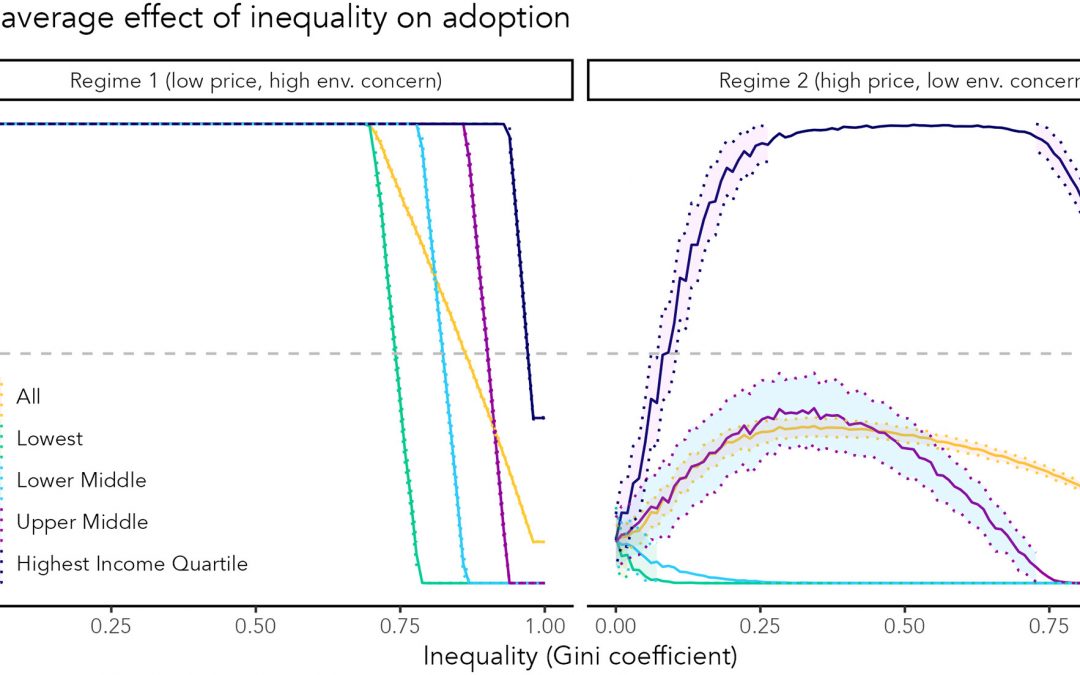
Martina Maglicic and Vítor V. Vasconcelos published a paper in iScience!
They examined how income inequality influences the adoption of environmentally friendly products, using analytical and agent-based models. In their study, Maglicic and Vasconcelos investigate how income inequality affects the ability of people to adopt environmentally friendly products, like electric cars and energy-efficient appliances. Their findings indicate that wealthier groups are more sensitive to social desirability, including environmental awareness, peer and status effects, while lower-income groups are mainly concerned with financial costs. When a significant portion of the population adopts green products, it can create a social tipping point that encourages others to follow suit (thus increasing adoption). However, in societies with high income inequality, these tipping points can hinder adoption even more, potentially leaving disadvantaged groups further behind in the transition to sustainable consumption. This work urges development of targeted approaches to address the financial barriers of lower-income groups alongside community-wide interventions for adoption of sustainable products.
For more details see 10.1016/j.isci.2025.112277

